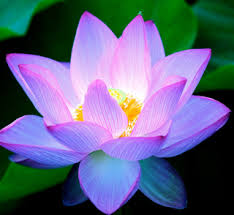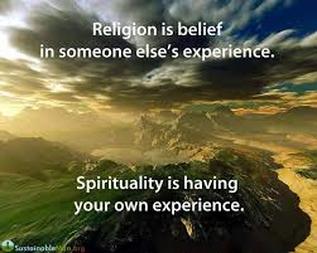Metaphysics simply means "beyond physics." That covers a lot of ground. But the longest journey begins with a single step...
Wikipedia on metaphysics, the quest for the truth of existence:
https://en.wikipedia.org/wiki/Metaphysics
Wikipedia on spirituality, an important subset of metaphysics:
https://en.wikipedia.org/wiki/Spirituality
Buddhism:
https://en.wikipedia.org/wiki/Buddhism
Hinduism:
https://en.wikipedia.org/wiki/Hinduism
Taoism:
https://en.wikipedia.org/wiki/Taoism
Christianity:
https://en.wikipedia.org/wiki/Christianity
Judaism:
https://en.wikipedia.org/wiki/Judaism
Islam:
https://en.wikipedia.org/wiki/Islam
Secular Humanism (atheists who identify with certain moral principles):
https://en.wikipedia.org/wiki/Secular_humanism
"Spiritual but not religious":
https://en.wikipedia.org/wiki/Spiritual_but_not_religious
Didn't find yourself?
https://en.wikipedia.org/wiki/List_of_religions_and_spiritual_traditions
Another exhaustive list:
https://ukiahcommunityblog.wordpress.com/2015/01/27/list-of-religions-and-spiritual-traditions/
Or, if you're into flashcards:
http://www.religionfacts.com/big-religion-chart
https://en.wikipedia.org/wiki/Metaphysics
Wikipedia on spirituality, an important subset of metaphysics:
https://en.wikipedia.org/wiki/Spirituality
Buddhism:
https://en.wikipedia.org/wiki/Buddhism
Hinduism:
https://en.wikipedia.org/wiki/Hinduism
Taoism:
https://en.wikipedia.org/wiki/Taoism
Christianity:
https://en.wikipedia.org/wiki/Christianity
Judaism:
https://en.wikipedia.org/wiki/Judaism
Islam:
https://en.wikipedia.org/wiki/Islam
Secular Humanism (atheists who identify with certain moral principles):
https://en.wikipedia.org/wiki/Secular_humanism
"Spiritual but not religious":
https://en.wikipedia.org/wiki/Spiritual_but_not_religious
Didn't find yourself?
https://en.wikipedia.org/wiki/List_of_religions_and_spiritual_traditions
Another exhaustive list:
https://ukiahcommunityblog.wordpress.com/2015/01/27/list-of-religions-and-spiritual-traditions/
Or, if you're into flashcards:
http://www.religionfacts.com/big-religion-chart
Want to double-check your spiritual orientation and have fun? Click on:
http://www.beliefnet.com/entertainment/quizzes/beliefomatic.aspx
http://www.beliefnet.com/entertainment/quizzes/beliefomatic.aspx
According to the system of philosophical elements (earth, air, water, fire = physical, mental, emotional, spiritual) that astrology inherited from the Indians and the Greeks, we all contain these four components of our selves. Any of them may be out of balance, but they may not be negated or gotten rid of. The imbalances may be either too much or too little of any particular element. One may be too emotional, too cerebral, too focused on the physical (or on practicality), or too fiery and impulsive. Or one may be lacking in any of these as well. These are the things that are shown in the horoscope.
For those who aren't traditionally religious, to be in balance, they must find another source for expressing spirituality in their lives: wonder at nature, care for their fellow humans, etc. Spirituality is ultimately about a sense of connection. For someone to simply say that they are "not spiritual" leaves them out of balance, and the possibility for a truly harmonious life is disrupted.
For those who aren't traditionally religious, to be in balance, they must find another source for expressing spirituality in their lives: wonder at nature, care for their fellow humans, etc. Spirituality is ultimately about a sense of connection. For someone to simply say that they are "not spiritual" leaves them out of balance, and the possibility for a truly harmonious life is disrupted.
Want in-depth knowledge of every corner of metaphysics? Here you go. Amazingly, the following article even has an exhaustive history and examination of Hellenistic astrology, including its connection to the Stoics:
http://www.iep.utm.edu/category/m-and-e/metaphysics/
One more scholarly site for those who can't get enough:
http://www.informationphilosopher.com/problems/metaphysics/
Why science needs metaphysics:
(It's so discouraging in viewing the comments section of some articles, and mainly videos, to see that certain people are allowed to play with computer keyboards. Please ignore. The depressing downside of open, shared information, I guess. Myself, I'm going back to the quotes section.)
http://nautil.us/issue/29/scaling/why-science-needs-metaphysics
Emotions and spirituality are linked. That's why "peak" or "enlightenment" experiences are as much emotional as they are mental:
https://www.takingcharge.csh.umn.edu/enhance-your-wellbeing/purpose/spirituality/what-spirituality
Spirituality vs. religion:
https://nccc.georgetown.edu/body_mind_spirit/definitions_spirituality_religion.html
What happens in the brain during spiritual experiences?
http://www.theatlantic.com/health/archive/2014/06/what-happens-to-brains-during-spiritual-experiences/361882/
Psychotropics and religion, a speculation. The general idea could have some plausibility to it, but John Marco Allegro's book that is mentioned towards the end pushes the limits of the fanciful. Possibly a bit too much fly agaric went into the research there:
http://www.theatlantic.com/health/archive/2013/12/religion-as-a-product-of-psychotropic-drug-use/282484/
As a companion to the above, let's offer this. We don't want to go too far in this direction, however, as it is ultimately a detour from the main road. And while it is encouraging that there is increasing pressure at this time to resume research into psychedelics, this is not to encourage their use: they are ultimately powerful and unpredictable chemicals. And there are other paths to the places that they lead.
https://www.theguardian.com/science/2016/apr/11/lsd-impact-brain-revealed-groundbreaking-images
What is spirituality? How can one put spirituality into one's life? What are the benefits? Study after study shows that spiritual people are happier, whether through religion, or being involved in other personal quests and traditions. It must go back to those four elements. Life is about balance and connection.
http://liveanddare.com/what-is-spirituality/
Don't take my word for it. There's meta-study analyses:
http://www.pursuit-of-happiness.org/science-of-happiness/spiritual-engagement/
An atheist's guide to spirituality:
http://nautil.us/issue/16/nothingness/an-atheists-guide-to-spirituality
Because there's just not enough quotes in the Quotes section :)
http://www.goodreads.com/quotes/tag/spirituality
You've got your metaphysics. Then you've got your religion and spirituality. Keep following that line, and you end up at mysticism.
https://en.wikipedia.org/wiki/Mysticism
The scholarly version:
https://plato.stanford.edu/entries/mysticism/
A Rationalist confronts mysticism:
https://www.nytimes.com/2014/04/06/opinion/sunday/a-rationalists-mystical-moment.html?_r=0
Hinduism eventually gave birth to Buddhism, which has since been embraced on a much wider scale by adventuresome Westerners. Hinduism itself (and its cousin Jainism) is kind of the "mother-religion" for many of the other religions on earth, as thoughts and beliefs made their way around the world, with different locales adding their own traditions, beliefs, and views. India to Greece, Greece to Rome, Rome to the West. The West, though, eventually came to prefer the dualistic Judeo-Christian-Islamic religions. Even Christianity, however, may have taken its idea of the tripartite Trinity from Hinduism's Trimurti. Hinduism is a vast, sprawling confusion of myths, deep philosophical concepts, beliefs, and practices. In India, they don't even call it Hinduism. People there practice what they call Sanātana Dharma, which simply means "the eternal law," or "eternal way." The Westerners called it Hinduism, likely because of its origins near the Indus river.
Here's a word that came across my path recently, and it is interesting because this one word, as is true for many things throughout much of Hinduism, opens a door into deep ideas about metaphysics; ones that Niels Bohr, with his ideas of complementarity, could have had productive discussions about. The fact that this one obscure word is probably .0000000000000001 of Hinduism tells what a profound and endless study this religion actually is. For those who have the patience and willingness, it is a bottomless well of human metaphysical thought.
https://en.wikipedia.org/wiki/Bandhu
Besides a general sense of the Oneness and inter-connectedness of the universe, the concept that is probably most central to Eastern religions is that of dharma. This ties in so closely with astrological concepts that it is no wonder that discipline is still so popular in India. Dharma also traveled with Buddhism (in slightly variant form) when it split from Hinduism.
https://en.wikipedia.org/wiki/Dharma
Another tradition that was friendly with astrology was that of the Stoics in Greece. Interestingly, their cosmology was so similar to that of the Indians that it stretches the imagination to think it coincidence. And just prior to the Stoics appearance on the scene, Alexander the Great had made his (unsuccessful) bid to take over India in his drive eastward. Hmm. On the other hand, current Indian Jyotish astrology likely came from Greece!
https://en.wikipedia.org/wiki/Stoic_physics
Here's a site that goes into detail (as another detour off our main road):
http://www.hinduwisdom.info/India_and_Greece.htm
(The philosophy of Epictetus also bears more than a passing resemblance to that of the Buddha.)
And here's some practical advice from the Stoics:
http://www.lifehack.org/articles/lifestyle/8-important-lessons-stoic-philosophy-will-teach-you-about-being-happy.html
Wisdom is timeless. It's a shame that more people today don't study what came before them. Technology changes and becomes more addictive and flashy, but the truths of the great thinkers of history remain as valid as ever.
This site has a good purpose, but it would be worth it just for the logo at the top, if nothing else. Einstein meets Shiva:
https://www.scienceandnonduality.com/?gclid=CPjQhPTZu9ECFUe5wAodU4kD0A
Here's more on scientists and the transcendent:
http://disinfo.com/2013/09/scientists-get-a-taste-of-the-transcendent/
"If we are bored we cannot be spiritual." Bored people are boring. Don't be bored.
http://www.wakingtimes.com/2014/02/24/three-unexplained-scientific-concepts-can-make-us-spiritual/
Left brain, right brain. Could it really be that simple?
http://indianexpress.com/article/lifestyle/life-style/are-you-a-believer-or-an-atheist-its-all-in-your-brain/
"Mindfulness" is the updated and euphemized version of Buddhism for Westerners that would feel uncomfortable saying they were doing something "Buddhist." The results are the same, however. "Wise mind" resides in the small overlap between intuition and rationality. That's both sides working together.
https://buddhismnow.com/2014/09/18/in-the-moment-of-mindfulness-there-is-no-suffering-by-ajahn-sumedho/
Mindfulness will put you on the road to Zen. People throw around the word Zen today as if it were an internet meme, but it's a real spiritual practice. D.T. Suzuki and Alan Watts were the big popularizers in the West. What is the sound of one hand clapping?
https://en.wikipedia.org/wiki/Zen
It starts with turning our cell phones off, and continues with turning our minds off. Sigh. Our modern world is a tough one.
http://theunboundedspirit.com/31-zen-buddhist-sayings/
Beginner's mind:
http://www.lionsroar.com/beginning-with-buddhism-and-meditation/?gclid=CKP5x-H1u9ECFYF8fgod8C8Kmw
Second semester:
The great thing about Buddhism is that it can be piggy-backed along with whatever other spiritual tradition one may be pursuing. It's very adaptable. It's compatible with science, as well as with other religions. Unless you're a monk, it's pretty low-key. It's very tolerant, and doesn't even get upset if it doesn't get tolerance in return. Why get upset? Really, that's the point. There are no wars fought over Buddhism. It's really more philosophy than religion.
The odd thing about Buddhism, however, is that it has that reincarnation thing laid atop an otherwise pretty secular system. You didn't hear me say this, but that is likely a holdover from the early days when Buddhism split off from Hinduism. Siddhartha Gautama (the Buddha) was raised Hindu.
http://www.buddhanet.net/e-learning/5minbud.htm
Namaste.
http://www.iep.utm.edu/category/m-and-e/metaphysics/
One more scholarly site for those who can't get enough:
http://www.informationphilosopher.com/problems/metaphysics/
Why science needs metaphysics:
(It's so discouraging in viewing the comments section of some articles, and mainly videos, to see that certain people are allowed to play with computer keyboards. Please ignore. The depressing downside of open, shared information, I guess. Myself, I'm going back to the quotes section.)
http://nautil.us/issue/29/scaling/why-science-needs-metaphysics
Emotions and spirituality are linked. That's why "peak" or "enlightenment" experiences are as much emotional as they are mental:
https://www.takingcharge.csh.umn.edu/enhance-your-wellbeing/purpose/spirituality/what-spirituality
Spirituality vs. religion:
https://nccc.georgetown.edu/body_mind_spirit/definitions_spirituality_religion.html
What happens in the brain during spiritual experiences?
http://www.theatlantic.com/health/archive/2014/06/what-happens-to-brains-during-spiritual-experiences/361882/
Psychotropics and religion, a speculation. The general idea could have some plausibility to it, but John Marco Allegro's book that is mentioned towards the end pushes the limits of the fanciful. Possibly a bit too much fly agaric went into the research there:
http://www.theatlantic.com/health/archive/2013/12/religion-as-a-product-of-psychotropic-drug-use/282484/
As a companion to the above, let's offer this. We don't want to go too far in this direction, however, as it is ultimately a detour from the main road. And while it is encouraging that there is increasing pressure at this time to resume research into psychedelics, this is not to encourage their use: they are ultimately powerful and unpredictable chemicals. And there are other paths to the places that they lead.
https://www.theguardian.com/science/2016/apr/11/lsd-impact-brain-revealed-groundbreaking-images
What is spirituality? How can one put spirituality into one's life? What are the benefits? Study after study shows that spiritual people are happier, whether through religion, or being involved in other personal quests and traditions. It must go back to those four elements. Life is about balance and connection.
http://liveanddare.com/what-is-spirituality/
Don't take my word for it. There's meta-study analyses:
http://www.pursuit-of-happiness.org/science-of-happiness/spiritual-engagement/
An atheist's guide to spirituality:
http://nautil.us/issue/16/nothingness/an-atheists-guide-to-spirituality
Because there's just not enough quotes in the Quotes section :)
http://www.goodreads.com/quotes/tag/spirituality
You've got your metaphysics. Then you've got your religion and spirituality. Keep following that line, and you end up at mysticism.
https://en.wikipedia.org/wiki/Mysticism
The scholarly version:
https://plato.stanford.edu/entries/mysticism/
A Rationalist confronts mysticism:
https://www.nytimes.com/2014/04/06/opinion/sunday/a-rationalists-mystical-moment.html?_r=0
Hinduism eventually gave birth to Buddhism, which has since been embraced on a much wider scale by adventuresome Westerners. Hinduism itself (and its cousin Jainism) is kind of the "mother-religion" for many of the other religions on earth, as thoughts and beliefs made their way around the world, with different locales adding their own traditions, beliefs, and views. India to Greece, Greece to Rome, Rome to the West. The West, though, eventually came to prefer the dualistic Judeo-Christian-Islamic religions. Even Christianity, however, may have taken its idea of the tripartite Trinity from Hinduism's Trimurti. Hinduism is a vast, sprawling confusion of myths, deep philosophical concepts, beliefs, and practices. In India, they don't even call it Hinduism. People there practice what they call Sanātana Dharma, which simply means "the eternal law," or "eternal way." The Westerners called it Hinduism, likely because of its origins near the Indus river.
Here's a word that came across my path recently, and it is interesting because this one word, as is true for many things throughout much of Hinduism, opens a door into deep ideas about metaphysics; ones that Niels Bohr, with his ideas of complementarity, could have had productive discussions about. The fact that this one obscure word is probably .0000000000000001 of Hinduism tells what a profound and endless study this religion actually is. For those who have the patience and willingness, it is a bottomless well of human metaphysical thought.
https://en.wikipedia.org/wiki/Bandhu
Besides a general sense of the Oneness and inter-connectedness of the universe, the concept that is probably most central to Eastern religions is that of dharma. This ties in so closely with astrological concepts that it is no wonder that discipline is still so popular in India. Dharma also traveled with Buddhism (in slightly variant form) when it split from Hinduism.
https://en.wikipedia.org/wiki/Dharma
Another tradition that was friendly with astrology was that of the Stoics in Greece. Interestingly, their cosmology was so similar to that of the Indians that it stretches the imagination to think it coincidence. And just prior to the Stoics appearance on the scene, Alexander the Great had made his (unsuccessful) bid to take over India in his drive eastward. Hmm. On the other hand, current Indian Jyotish astrology likely came from Greece!
https://en.wikipedia.org/wiki/Stoic_physics
Here's a site that goes into detail (as another detour off our main road):
http://www.hinduwisdom.info/India_and_Greece.htm
(The philosophy of Epictetus also bears more than a passing resemblance to that of the Buddha.)
And here's some practical advice from the Stoics:
http://www.lifehack.org/articles/lifestyle/8-important-lessons-stoic-philosophy-will-teach-you-about-being-happy.html
Wisdom is timeless. It's a shame that more people today don't study what came before them. Technology changes and becomes more addictive and flashy, but the truths of the great thinkers of history remain as valid as ever.
This site has a good purpose, but it would be worth it just for the logo at the top, if nothing else. Einstein meets Shiva:
https://www.scienceandnonduality.com/?gclid=CPjQhPTZu9ECFUe5wAodU4kD0A
Here's more on scientists and the transcendent:
http://disinfo.com/2013/09/scientists-get-a-taste-of-the-transcendent/
"If we are bored we cannot be spiritual." Bored people are boring. Don't be bored.
http://www.wakingtimes.com/2014/02/24/three-unexplained-scientific-concepts-can-make-us-spiritual/
Left brain, right brain. Could it really be that simple?
http://indianexpress.com/article/lifestyle/life-style/are-you-a-believer-or-an-atheist-its-all-in-your-brain/
"Mindfulness" is the updated and euphemized version of Buddhism for Westerners that would feel uncomfortable saying they were doing something "Buddhist." The results are the same, however. "Wise mind" resides in the small overlap between intuition and rationality. That's both sides working together.
https://buddhismnow.com/2014/09/18/in-the-moment-of-mindfulness-there-is-no-suffering-by-ajahn-sumedho/
Mindfulness will put you on the road to Zen. People throw around the word Zen today as if it were an internet meme, but it's a real spiritual practice. D.T. Suzuki and Alan Watts were the big popularizers in the West. What is the sound of one hand clapping?
https://en.wikipedia.org/wiki/Zen
It starts with turning our cell phones off, and continues with turning our minds off. Sigh. Our modern world is a tough one.
http://theunboundedspirit.com/31-zen-buddhist-sayings/
Beginner's mind:
http://www.lionsroar.com/beginning-with-buddhism-and-meditation/?gclid=CKP5x-H1u9ECFYF8fgod8C8Kmw
Second semester:
The great thing about Buddhism is that it can be piggy-backed along with whatever other spiritual tradition one may be pursuing. It's very adaptable. It's compatible with science, as well as with other religions. Unless you're a monk, it's pretty low-key. It's very tolerant, and doesn't even get upset if it doesn't get tolerance in return. Why get upset? Really, that's the point. There are no wars fought over Buddhism. It's really more philosophy than religion.
The odd thing about Buddhism, however, is that it has that reincarnation thing laid atop an otherwise pretty secular system. You didn't hear me say this, but that is likely a holdover from the early days when Buddhism split off from Hinduism. Siddhartha Gautama (the Buddha) was raised Hindu.
http://www.buddhanet.net/e-learning/5minbud.htm
Namaste.
More articles to come...





